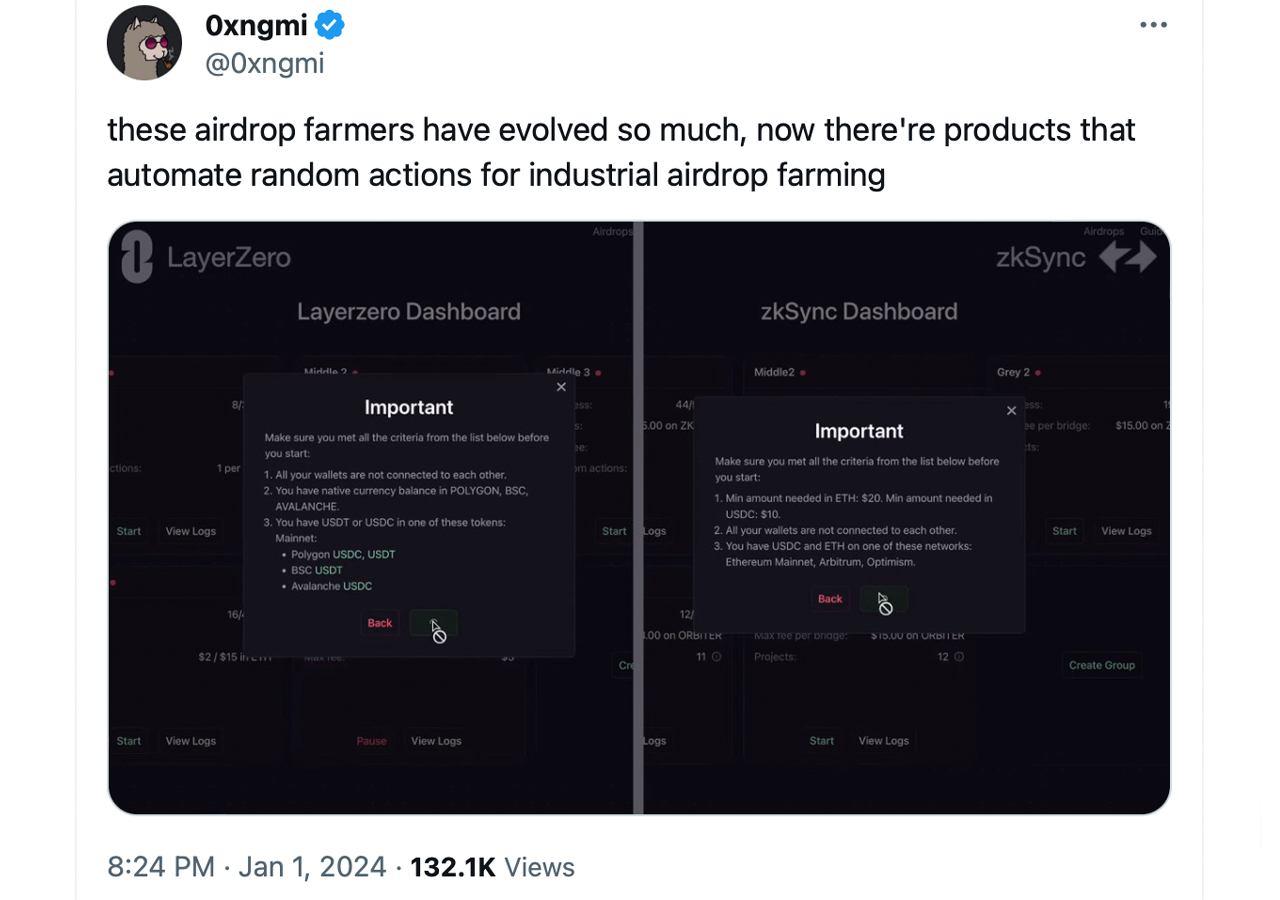
As the crypto economy burgeons, a new trend called airdrop farming is taking root, offering both promise and pitfalls. The following is an exploration of this emerging practice, unraveling its intricacies, potential rewards, and the controversies it stirs.
The Double-Edged Sword of Airdrop Farming: Boon for Some, Bane for Others
In recent years, airdrops have surged in prominence, with individuals involved in decentralized finance (defi) discovering rewarding opportunities, and defi initiatives innovating ways to disburse their native cryptocurrencies. As the appeal of airdrops has grown, a trend of widespread farming has emerged within the sector.
Although this strategy has proven profitable for a handful, others contend it manipulates the system unjustly. Fundamentally, airdrop farming involves the measures users implement to enhance their collection of airdropped tokens from retroactive airdrops, effectively strategizing to gather increased rewards.

This method frequently entails employing numerous addresses or executing repetitive actions to magnify returns, which is perceived as tweaking the distribution norms. Undertaking this activity requires a series of steps and outcomes may not always align with expectations.
The central strategy of airdrop farming encompasses distributing one’s crypto holdings among numerous unique addresses. Participants engage with crypto services using these diversified addresses, with every interaction possibly eligible for individual airdrop rewards.
While ingenious, this approach is frequently seen as taking advantage of airdrop benevolence, eliciting critique from the wider community. The practice has escalated in scale and frequently becomes a subject of discussion on social media platforms.

While ingenuity is applauded in many sectors, airdrop farming is contentious, critiqued for warping the organic token distribution, and potentially disadvantaging genuine participants. This method mirrors Sybil Attacks in cybersecurity, prompting many crypto teams to implement advanced detection mechanisms to safeguard fairness and project integrity.
Still, airdrop farming has emerged as a lucrative technique for those adept at navigating the crypto waters. With the potential to multiply one’s token holdings significantly, it attracts users looking to maximize their digital asset portfolios.
The promise of increased rewards can be tempting, making it a popular, if not controversial, strategy. Engaging in airdrop farming isn’t straightforward and requires a nuanced understanding of the crypto ecosystem.
Participants must be tech-savvy, well-versed in managing multiple non-custodial Web3 wallets, and aware of the latest airdrop opportunities and their specific rules, making it a domain for the determined and knowledgeable. Additionally, airdrop farmers have refined their techniques over time, enhancing their methodologies.
It’s believed that this practice has spread across various countries and has somewhat become industrialized. Furthermore, if the distribution of a coin is susceptible to manipulation, so too can the market, as significant holders may sway the token’s market performance.
Although certain defi initiatives have devised strategies to counteract airdrop farmers, others have succumbed to the tactic, resulting in genuine active users being overshadowed by a multitude of automated addresses.
The future of this trend is uncertain, yet as long as airdrops remain lucrative, it’s likely that this approach will persist, compelling project managers to develop methods to filter through these bot-like masses.
What do you think about airdrop farming? Share your thoughts and opinions about this subject in the comments section below.















